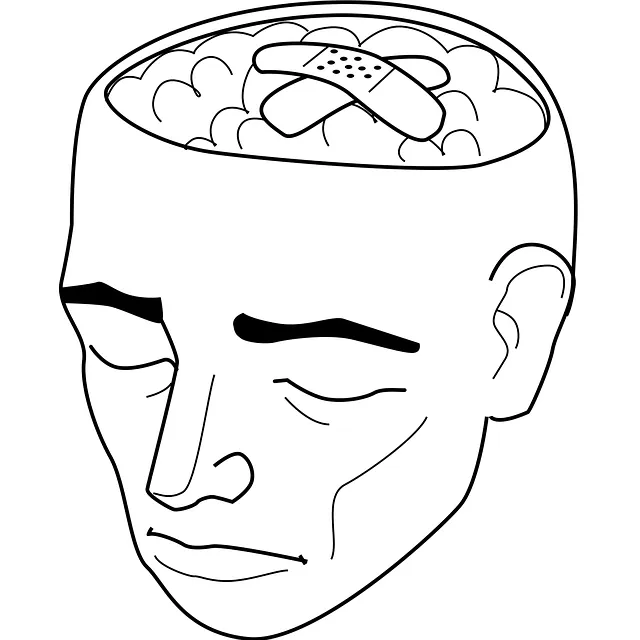Kaiser trauma therapy recognizes that childhood experiences shape future emotional responses. This approach combines conventional CBT and EMDR techniques with alternative practices like relaxation, meditation, and yoga to treat PTSD and complex PTSD. It emphasizes self-reflection, empathy, and creating safe spaces for healing. Techniques include deep breathing exercises (Kaiser breathing) and energy healing, fostering tranquility, resilience, and emotional balance. Professional training in trauma-informed care equips individuals and organizations to address complex traumatic experiences holistically, promoting mental healing and memory processing.
Healing old wounds is a transformative journey towards holistic well-being. This article explores the profound impact of past trauma and offers practical insights into effective healing strategies. From understanding the effects of trauma to discovering the power of self-reflection, mindfulness, and safe spaces, we delve into proven methods like Kaiser Trauma Therapy. Additionally, we discuss building resilience, supporting others’ recovery, and fostering an environment conducive to emotional growth.
- Understanding the Impact of Past Trauma
- The Power of Self-Reflection and Empathy
- Exploring Kaiser Trauma Therapy Techniques
- Building Resilience: Mindfulness and Coping Strategies
- Creating Safe Spaces for Emotional Healing
- Supporting Others on Their Journey to Recovery
Understanding the Impact of Past Trauma

Past traumas can leave deep scars that affect our present and future well-being. Understanding the impact of these experiences is a crucial first step in the journey to heal old wounds. Kaiser trauma therapy recognizes that traumatic events, especially those experienced in childhood or adolescence, can shape one’s emotional responses and behaviors later in life. This can manifest as various mental health challenges, such as post-traumatic stress disorder (PTSD) or complex PTSD, making it essential to address these underlying issues.
Trauma has a way of infiltrating our minds and bodies, creating a sense of disconnection from ourselves and the world around us. The brain’s natural coping mechanisms can sometimes become overwhelmed, leading to flashbacks, nightmares, and heightened sensitivity. Gentle ways to overcome trauma include energy healing for post-traumatic stress, which aims to release blocked emotions and restore balance within the body. Self-help strategies for complex PTSD also emphasize creating safe spaces, practicing self-compassion, and adopting healthy coping mechanisms to rewire negative thought patterns.
The Power of Self-Reflection and Empathy

Healing old wounds often involves a journey inward, where self-reflection and empathy play a pivotal role. This process empowers individuals to confront and understand their past experiences, especially those involving trauma. By engaging in introspective practices, one can develop a deeper sense of self-awareness, allowing them to recognize patterns of behavior or emotional responses that may have been formed as coping mechanisms. For instance, the Kaiser trauma therapy method emphasizes this aspect by encouraging clients to explore their feelings and thoughts without judgment.
Empathy, both towards oneself and others, is another powerful tool in the healing process. It helps create a supportive environment, fostering understanding and forgiveness, which are essential for moving forward. Many people have found success stories through the Kaiser method, testifying to its effectiveness in dealing with trauma without traditional therapy methods. Non-pharmacological approaches like this encourage individuals to confront their trauma head-on, promoting long-lasting healing rather than merely masking symptoms.
Exploring Kaiser Trauma Therapy Techniques

Exploring Kaiser Trauma Therapy Techniques offers a promising path toward healing from abuse naturally and addressing post-traumatic stress disorder (PTSD). This approach leverages advanced methodologies tailored to individual needs, focusing on both the mind and body. By integrating various therapeutic practices, such as cognitive behavioral therapy (CBT), eye movement desensitization and reprocessing (EMDR), and mindfulness techniques, Kaiser Trauma Therapy aims to help individuals process and overcome traumatic memories effectively.
One of its key strengths lies in combining conventional psychological treatments with alternative medicine approaches. For instance, incorporating relaxation techniques, meditation, and yoga into the therapy regimen can aid in managing symptoms associated with PTSD. These alternative treatment for PTSD kaiser methods promote a holistic healing process, addressing not just the symptoms but also the underlying emotional trauma. This comprehensive strategy ensures that individuals can find sustainable relief and rediscover a sense of well-being in their lives.
Building Resilience: Mindfulness and Coping Strategies

Healing old wounds is a transformative journey, and building resilience through mindfulness practices plays a crucial role in this process. Kaiser trauma therapy emphasizes the power of self-awareness and coping strategies to navigate through traumatic experiences. By integrating mindfulness into daily routines, individuals can develop a stronger sense of control and emotional balance. This involves techniques such as deep breathing exercises, often referred to as Kaiser breathing for panic attacks, which help calm the mind and body, fostering a state of tranquility.
The Kaiser method certification online provides individuals with tools to cope with trauma release techniques at home. These practices encourage a mindful approach to process past traumas, allowing for emotional healing and growth. Through dedicated practice, one can enhance their resilience, enabling them to face challenges with greater equanimity and a sense of inner strength.
Creating Safe Spaces for Emotional Healing

Creating safe spaces is a fundamental aspect of emotional healing, especially when addressing deep-seated issues like trauma. This involves fostering an environment where individuals feel supported and empowered to confront their past. Techniques such as Kaiser trauma therapy offer structured approaches to process traumatic memories and emotions in a controlled setting. By engaging in open dialogue with a trained therapist, one can begin to unravel the complexities of trauma, leading to significant personal growth.
In the context of dealing with trauma without traditional therapy, self-help strategies like creating safe spaces at home or within supportive communities can be beneficial. These spaces allow for the expression of feelings and memories in a non-judgmental atmosphere, promoting healing. For those struggling with complex PTSD or anxiety disorders, exploring alternative therapies, such as art therapy or nature-based interventions, alongside professional guidance, can provide holistic support in their journey towards emotional well-being.
Supporting Others on Their Journey to Recovery

Healing old wounds is a process that involves not only personal growth but also fostering an environment of support for those recovering from trauma. This is where the role of professionals becomes invaluable; offering trauma-informed care training ensures that individuals and organizations understand the complexities of trauma and can provide effective assistance. By integrating mind-body techniques into their practice, therapists like those at Kaiser Trauma Therapy can facilitate a holistic approach to healing, addressing both the mental and physical aspects of post-traumatic stress disorder (PTSD).
Encouraging a supportive network for individuals on their journey to recovery is essential. This includes creating safe spaces where people feel understood and empowered. Through empathy, patience, and specialized interventions like energy healing for post-traumatic stress, victims can begin to process and let go of painful memories. It’s about more than just words; it involves practical actions that acknowledge the severity of trauma and offer a path towards restoration.
Healing old wounds is a transformative journey that can lead to profound personal growth. By understanding the impact of past trauma, practicing self-reflection and empathy, exploring evidence-based therapies like Kaiser trauma therapy, adopting mindfulness and effective coping strategies, creating safe emotional spaces, and supporting others in their recovery, we can navigate the path to healing and build resilience. Remember, with dedication and the right tools, it’s possible to overcome challenges and find peace.






